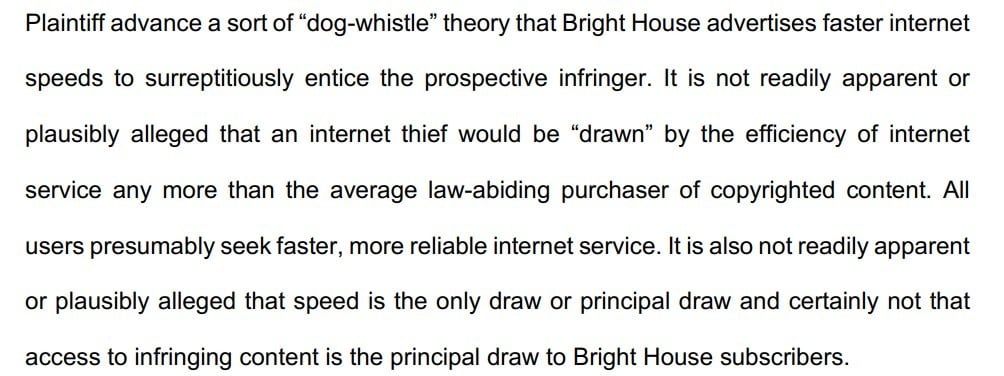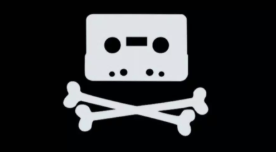[Most Recent Entries] [Calendar View]
Monday, July 13th, 2020
| Time | Event |
| 9:56a | Number of Online Pirates in Italy Steady But Research Summary Downplays Big Success Story
The aim of the work is to measure overall piracy rates in the country, including the number of participants, content consumed, and the number of infringing acts. The manner in which the data is presented this year is interesting since despite there being an impressive success story to be told, FAPAV isn’t drawing too much attention to it. Number of Pirates Slightly DownIf we start with the volume of Italian citizens who consumed pirate content in 2019, there is a small victory for copyright holders. While in 2018 around 38% of the population were engaged in the consumption of illicit content, in 2019 that figure was down to 37%. An admittedly small reduction of course, but a reduction nonetheless. In terms of the entire population, 31% engaged in film piracy (down two percentage points on 2018) while 23% consumed TV series, up two points on the previous year. Overall live sports piracy was up one point to 10% this year, with the percentage of people accessing sport, movies, and TV via IPTV devices also at 10% of the population. Unsurprisingly, video content was most popular with pirates, with 84% consuming movies and 63% targeting TV shows. Software was obtained by 46% of pirate users with 27% admitting to accessing live sporting events. However, when drilling down into the number of infringing acts carried out by these unlicensed consumers, things start to get more interesting. Number of Overall Acts is Massively DownWhen reporting on a similar study last year, FAPAV noted that in respect of mainstream piracy of movies, TV shows, live sporting events etc, Italians carried out 578 million individual acts of infringement in 2018. That’s undoubtedly a large volume given that Italy has a population of around 60 million people. This year, however, that figure isn’t really dwelled upon but perhaps it should’ve been. What the latest figures reveal is that during 2019, Italians carried out ‘just’ 414 million video infringements, down a massive 28% on the previous year. While the number of people engaging in piracy has dipped only slightly, it appears that the number of times they turn to pirate sources has dropped significantly, which tends to suggest that availability of legal sources and/or anti-piracy measures are really having an effect.  While the most important thing is the headline figure, there are some notable shifts within it that may be a cause for concern in the years ahead. Among the 10 to 14-year-olds, for example, 39% use pirate sources, down 8% when compared to 2018. However, in the same group, the number of infringements increased from 31 million in 2018 to almost 40 million in 2019, up 27% with a reported strong interest in TV show content. Also on the up is the illicit consumption of live sporting events. In 2018, an estimated 4.7 million Italians obtained such content illegally but in 2019, that had increased to 5.2 million. Also of concern to rightsholders in the sector is that overall infringing acts are up too, from 22 million in 2018 to 31 million in 2019. Additional Data: Coronavirus Lockdown 2020As our previous reports highlighted (1,2,3), lockdowns implemented by governments in response to the coronavirus pandemic had a profound effect on piracy rates. The Ipsos study in Italy reveals that during the country’s lockdown, around 40% of the population engaged in piracy, up from the 37% reported on average in 2019. More worrying, however, is that individual acts of piracy went through the roof, from 69 million acts in an average two-month period in 2019 to 243 million during the two-month lockdown. Users of pirate IPTV services also received a notable bump to 19%, up from the 10% reported in 2019. It’s estimated that during the lockdown, around 10% of Italians tried piracy for the first time, with around half going down the pirate IPTV route. On a more positive note for the industry, however, 8% of the population became new subscribers to legal video platforms, with 76% of those reporting they will continue their subscriptions in the future. The full report can be downloaded here (pdf) From: TF, for the latest news on copyright battles, piracy and more. |
| 7:56p | Bright House Doesn’t Directly Profit From Pirating Subscribers, Court Rules
Bright House is owned by Charter, which was sued in a separate complaint simultaneously. In both cases, the music companies demanded compensation for their alleged losses. The lawsuits, which are part of a broader legal campaign against ISPs, have continued on their own paths since. Both Bright House and Charter submitted motions to dismiss the claims. For Bright House, this resulted in a victory late last week. In February, the ISP submitted a motion to dismiss the vicarious copyright infringement claims. Bright House refuted the claim that it profited directly from pirating subscribers, something which the court now agrees. Florida Court Dismisses Vicarious Infringement ClaimUS District Court Judge Mary Scriven dismisses the music companies’ allegations, describing their argumentation as insufficient. The music companies argued that some subscribers are “drawn” by the ability to pirate and Bright House’s “failure to police” piracy, which resulted in copyright infringement on a “massive” scale. However, according to the court, this is not enough to show that there’s a direct financial benefit. Judge Scriven notes that the ability to download infringing content is just one of many reasons people may have to subscribe to Bright House’s services. “At most, Plaintiffs allege that access to infringing content generally available on the internet is one of many reasons motivating some subscribers to enroll with any ISP,” Scriven writes. “Plaintiff do not allege that there is anything unique about the service Bright House offers as a portal to the internet or as a portal to this alleged contraband content,” she adds. Even if the ability to pirate is a draw, the music companies still fail to show that this is the primary draw, which is required to prove vicarious copyright infringement. Dog-Whistle TheoryAccording to Judge Scriven, the copyright holders rely on some sort of “dog-whistle” theory which claims that prospective pirates are lured in by Bright House’s ads for high-speed downloads. “It is not readily apparent or plausibly alleged that an internet thief would be ‘drawn’ by the efficiency of internet service any more than the average law-abiding purchaser of copyrighted content. All users presumably seek faster, more reliable internet service,” Judge Scriven writes.  If that theory held up, it would essentially apply to all Internet providers, she clarifies, while stressing that high speeds and access to BitTorrent downloads are not exclusive to Bright House’s services. Based on these and other arguments, the Florida district court dismissed the vicarious copyright infringement claim. “The Court concludes that Plaintiffs have failed to adequately allege that Bright House receives a direct financial benefit from its users’ infringing activity. For this reason, the vicarious liability claim fails,” US District Court Judge Mary Scriven writes. This doesn’t mean that the lawsuit is over. Bright House didn’t request dismissal of the contributory copyright infringement allegation, so for now, the case will go ahead based on that claim. — A copy of US District Court Judge Mary Scriven’s order on the motion to dismiss the vicarious liability claim is available here (pdf) From: TF, for the latest news on copyright battles, piracy and more. |
| << Previous Day |
2020/07/13 [Calendar] |
Next Day >> |

 Last year a group of music industry giants, including Sony, Universal, and Warner Bros,
Last year a group of music industry giants, including Sony, Universal, and Warner Bros,